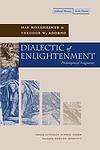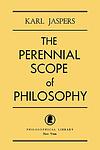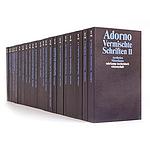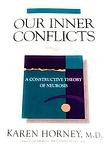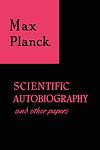The Greatest German "Nonfiction" Books From 1940 to 1949
Click to learn how this list is calculated.
This list represents a comprehensive and trusted collection of the greatest books. Developed through a specialized algorithm, it brings together 291 'best of' book lists to form a definitive guide to the world's most acclaimed books. For those interested in how these books are chosen, additional details can be found on the rankings page.
Genres
Countries
Date Range
Reading Statistics
Click the button below to see how many of these books you've read!
Download
If you're interested in downloading this list as a CSV file for use in a spreadsheet application, you can easily do so by clicking the button below. Please note that to ensure a manageable file size and faster download, the CSV will include details for only the first 500 books.
Download-
1. Dialectic Of Enlightenment by Max Horkheimer, Theodor Adorno
"Dialectic of Enlightenment" is a seminal philosophical work that explores the nature of enlightenment and its paradoxical relationship with the concept of reason. The authors argue that the Enlightenment's quest for knowledge, freedom, and autonomy has inadvertently led to the opposite: a form of domination and control through instrumental reason. They examine how the Enlightenment's rationality, once aimed at liberating individuals from myth and superstition, has devolved into a tool of oppression, giving rise to totalitarian systems and a culture industry that manipulates mass society. The book delves into various cultural artifacts, including literature, film, and popular culture, to illustrate how enlightenment has become self-destructive, ultimately questioning the possibility of true emancipation in a society governed by the very rationality that was supposed to set it free.
-
2. The Structure And Practice Of National Socialism by Franz Neumann
The book provides a comprehensive analysis of the political, social, and economic systems of National Socialism in Germany from its rise to power to its functioning during World War II. It delves into the regime's ideologies, the role of terror and propaganda, the structure of the state, and the interplay between different power groups within the Nazi hierarchy. The author critically examines how the regime sought to create a totalitarian state, with a particular focus on the suppression of individual freedoms and the mechanisms of control used to maintain its authority. Through this exploration, the book offers insights into the complexities and contradictions of the Nazi system, as well as the devastating impact it had on society and the world at large.
-
3. The Perennial Scope Of Philosophy by Karl Jaspers
The book in question explores the enduring nature of philosophical inquiry, examining how it transcends temporal and cultural boundaries to address fundamental questions of existence, knowledge, and ethics. The author argues that philosophy is not confined to any particular era or dogma but is a continuous pursuit of truth that evolves with human thought while remaining rooted in the quest for universal understanding. Through a critical examination of historical philosophical movements and their contributions to the ongoing dialogue, the work emphasizes the importance of philosophy in providing a framework for individuals to confront the mysteries of life and the universe, encouraging readers to engage in their own philosophical contemplation.
-
4. The Fear Of Freedom by Erich Fromm
The book explores the psychological and societal mechanisms that lead individuals to relinquish their autonomy and seek security in authoritarian systems, despite the inherent dangers of such a surrender. It delves into the historical context of the 20th century, particularly the rise of fascism and totalitarianism, to understand the paradoxical inclination of people to escape freedom's responsibilities. The author argues that true freedom requires not only the absence of external constraints but also the presence of inner psychological conditions that enable self-reliance, critical thinking, and the ability to love and connect with others. The work challenges readers to confront the difficult task of achieving positive freedom through self-awareness and the development of one's human potential.
-
5. Man Meets Dog by Konrad Lorenz
In "Man Meets Dog," the author explores the deep bond between humans and dogs, tracing the origins and development of this unique relationship. Through a combination of personal anecdotes and scientific insights, the book delves into various aspects of canine behavior, psychology, and the evolutionary factors that have shaped the human-dog partnership. The author, an eminent ethologist, uses his observations of his own dogs to illustrate broader themes about communication, affection, and the instinctual basis of domestication, offering readers a thoughtful reflection on why dogs hold such a special place in human society.
-
6. Philosophy of Modern Music by Theodor Adorno
This book offers a comprehensive analysis and critique of modern music, focusing on the works of two prominent 20th-century composers. The author explores the relationship between society and music, arguing that the evolution of music reflects changing social and political landscapes. The text suggests that the dissonance and atonality in modern music reflects the alienation and disillusionment of modern society. The book is a seminal work in the field of music philosophy and is renowned for its in-depth exploration of the societal implications of musical developments.
-
7. Escape from Freedom by Erich Fromm
This book delves into the psychological and social mechanisms that make people afraid of freedom, leading them to seek safety in authoritarian systems. The author explores the concept of freedom in the context of historical events like the Reformation and the rise of democracy, arguing that while these events have given people more freedom, they have also left many feeling isolated and anxious. He suggests that this anxiety can lead to a desire for conformity and submission to a powerful authority, potentially leading to the rise of totalitarian regimes.
-
8. Our Inner Conflicts by Karen Horney
The book delves into the complex world of psychoanalysis, exploring the internal struggles that individuals face as a result of conflicting impulses and desires. The author argues that these internal battles are rooted in the basic human need for security and affection, which, when threatened, can lead to neuroses. The work emphasizes the importance of self-awareness and the examination of one's own psychological mechanisms to overcome these conflicts. This introspective journey is presented as a pathway to personal growth, self-understanding, and ultimately, mental health.
-
9. Character Analysis by Wilhelm Reich
"Character Analysis" is a seminal work in the field of psychoanalysis and therapy, where the author introduces a revolutionary theory explaining how psychoanalytic techniques can be used to systematically understand and address character structures. The book delves into the concept of character armor - the notion that an individual's character traits are defenses formed in response to various psychic conflicts, primarily rooted in sexual repression. By exploring the formation and function of these character defenses, the author aims to demonstrate how they can be dissolved through psychoanalytic intervention, leading to the release of emotional blockages and the enhancement of psychological well-being.
-
10. Behemoth by Franz Neumann
"Behemoth" is a comprehensive analysis of the structure and practice of National Socialism in Germany from its rise to its peak during World War II. The book delves into the political, economic, and social frameworks that defined the Nazi regime, arguing that it represented a new form of totalitarianism marked by chaotic governance, industrial monopolies, and the fusion of state and party under despotic rule. The author critically examines how these elements led to aggressive expansionism and the systematic extermination of Jews and other minorities, ultimately asserting that the regime's inherent contradictions contributed to its downfall.
-
11. Essays in Sociology by Max Weber
This book is a collection of essays that delve into the intricate aspects of sociology. The author explores the role of politics, religion, and economics in shaping society while also examining the influence of bureaucracy and charisma on leadership. It also provides comprehensive insights into the theory of social action, the nature of social relationships, and the concept of ideal types. This book is a significant contribution to understanding the complexities of social structures and human behavior.
-
12. Scientific Autobiography and Other Papers by Max Planck
This book is a compilation of the author's scientific autobiography and other scientific papers, providing an insightful look into his life and work. The author, a prominent physicist, discusses his contributions to quantum theory and his experiences during World War II. The book also includes his thoughts on philosophy and religion, and how they intersect with his scientific work. This collection provides an intimate look into the mind of one of the most influential scientists of the 20th century.
-
13. Zen In The Art Of Archery by Eugen Herrigel
The book explores the author's journey to understand and practice Zen Buddhism through the art of archery in Japan. As a Westerner in a profoundly different culture, he delves into the spiritual and philosophical aspects of Zen, learning that mastery of archery is not merely about hitting the target, but about merging the archer, the bow, the arrow, and the target in a fluid, effortless action that transcends physical and mental boundaries. Through his experiences, the author reveals how Zen emphasizes intuition, insight, and the unity of mind and body, offering profound lessons on discipline and focus that apply far beyond archery.
-
14. Strahlungen by Ernst Jünger
This book is a comprehensive diary that captures the author's experiences and reflections during World War II, particularly focusing on his service on the Eastern Front and his time in Paris during the German occupation. The work is a blend of personal observation, philosophical musing, and vivid descriptions of the wartime environment, offering a unique insight into the mind of a soldier who is both a participant in and an observer of the conflict. Through his detailed and often introspective entries, the author provides a nuanced exploration of the nature of war, the moral complexities it engenders, and the impact it has on both individuals and society as a whole.
Reading Statistics
Click the button below to see how many of these books you've read!
Download
If you're interested in downloading this list as a CSV file for use in a spreadsheet application, you can easily do so by clicking the button below. Please note that to ensure a manageable file size and faster download, the CSV will include details for only the first 500 books.
Download